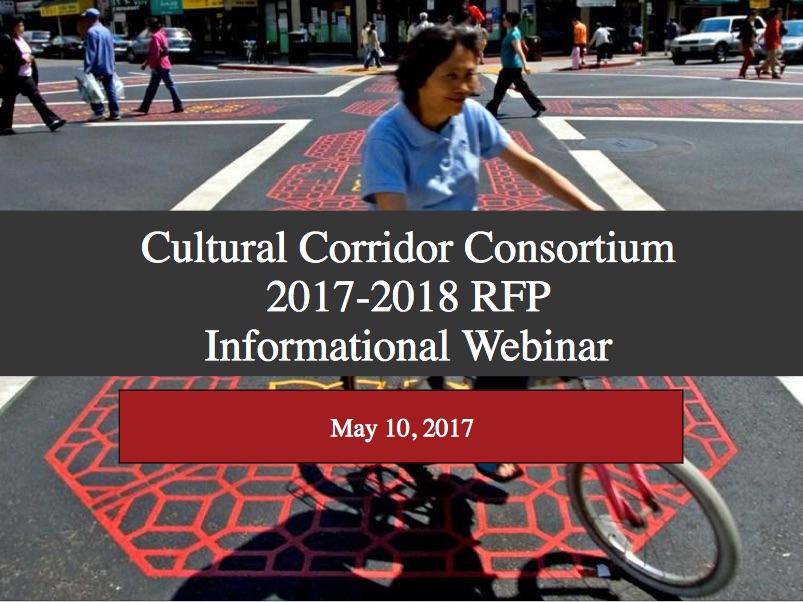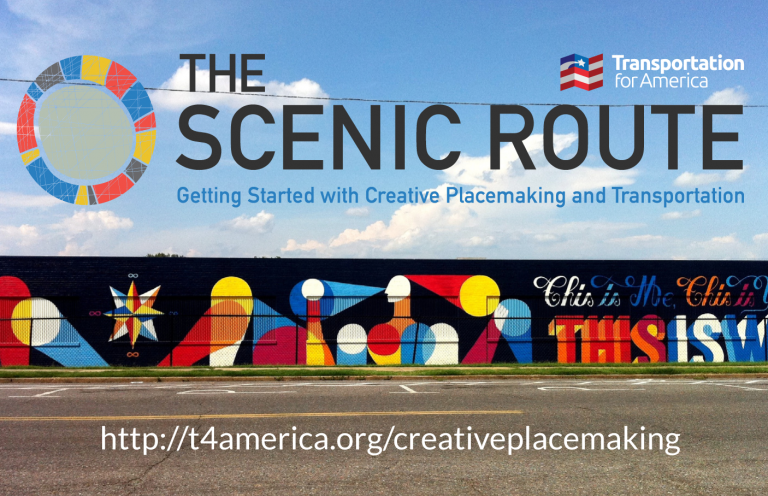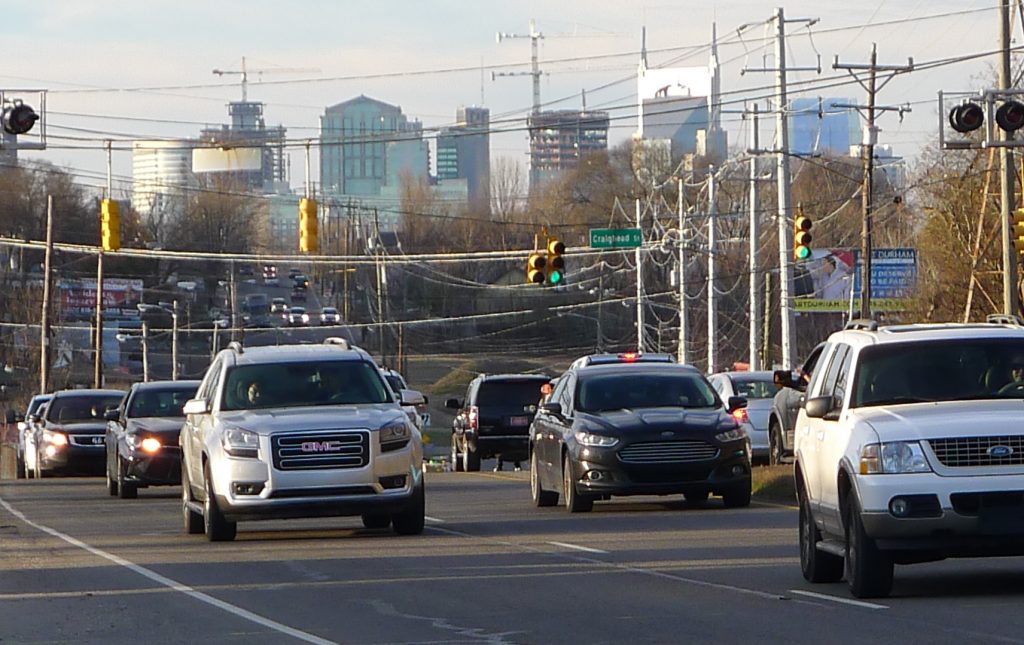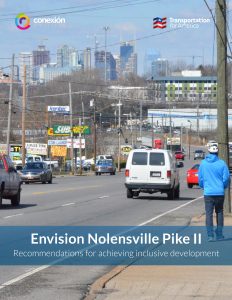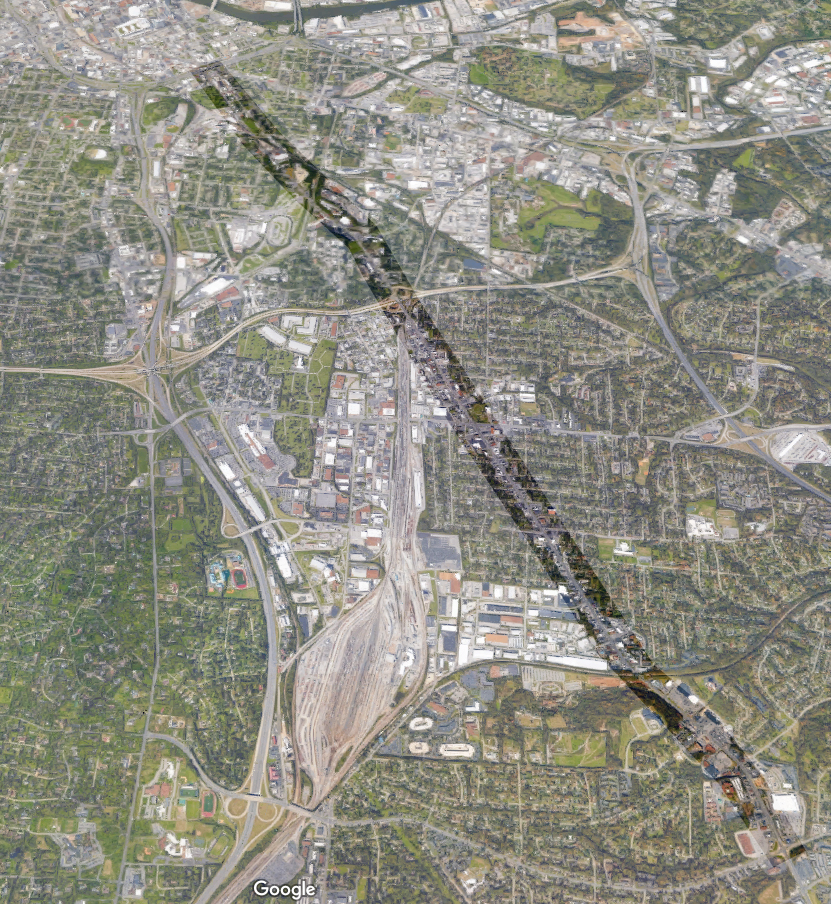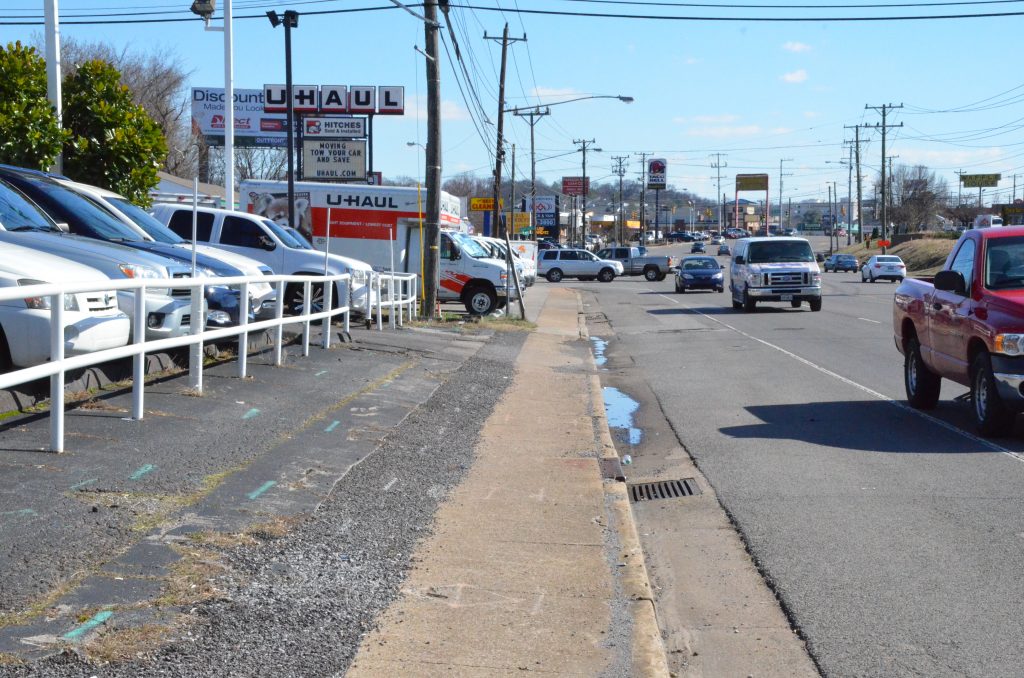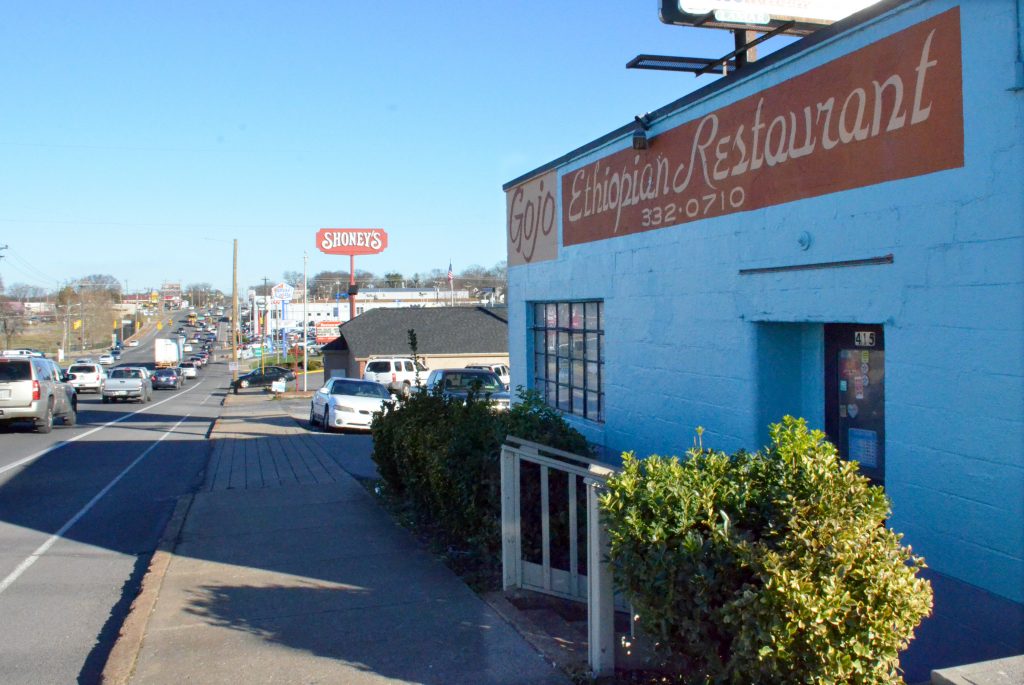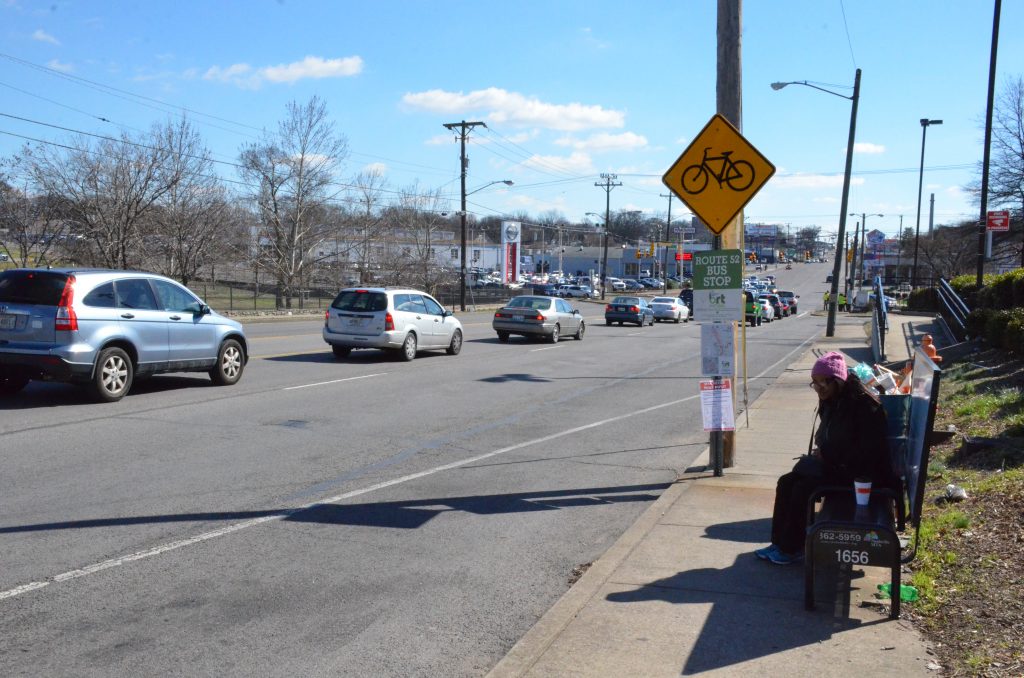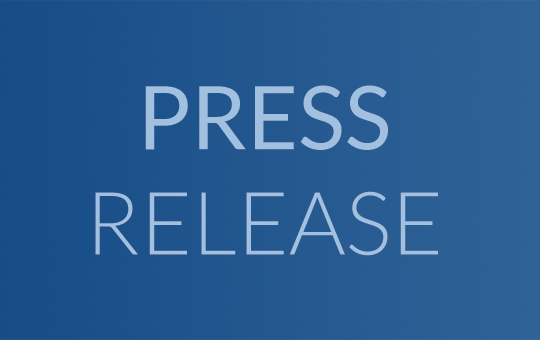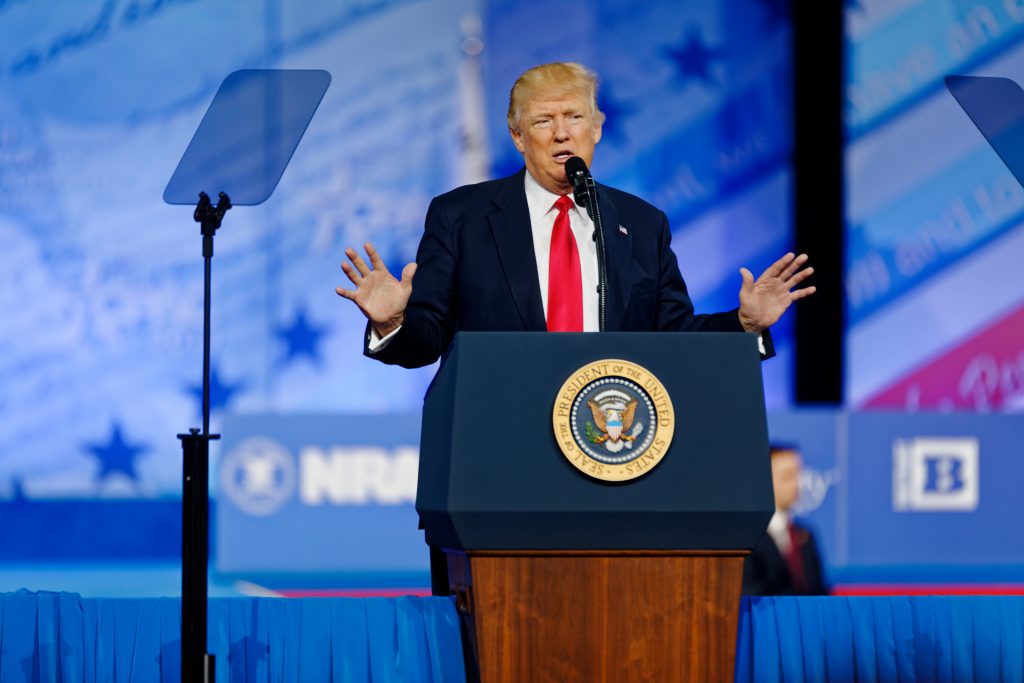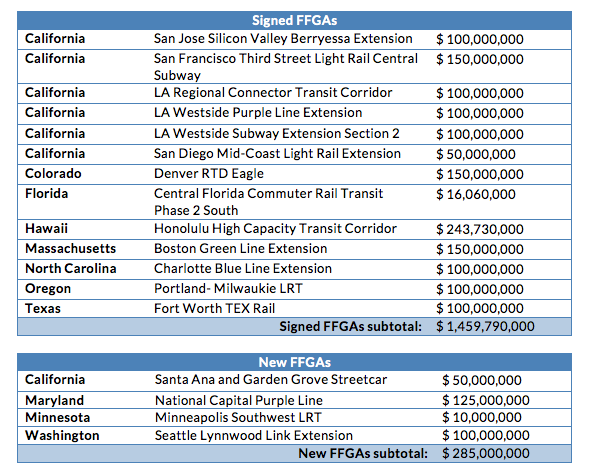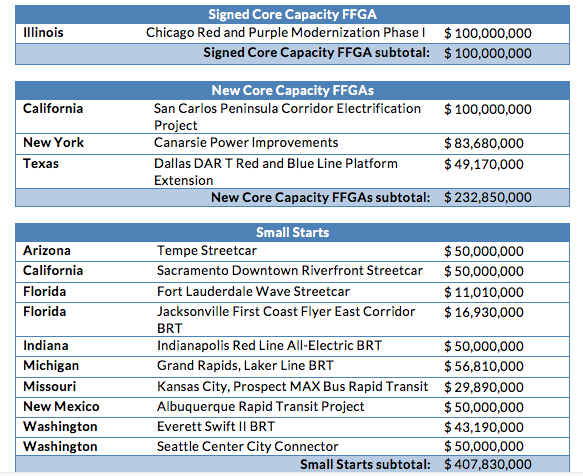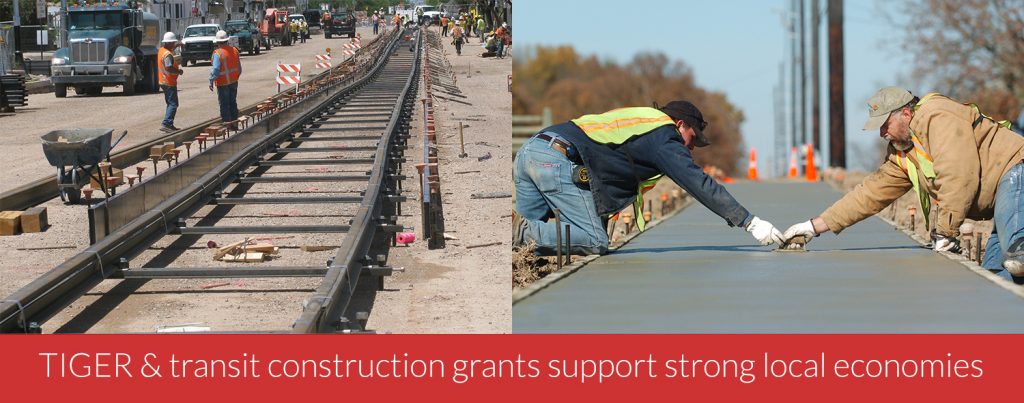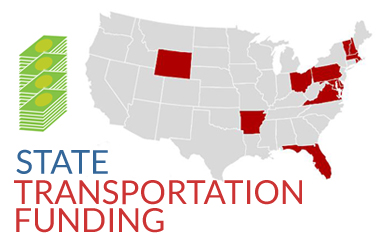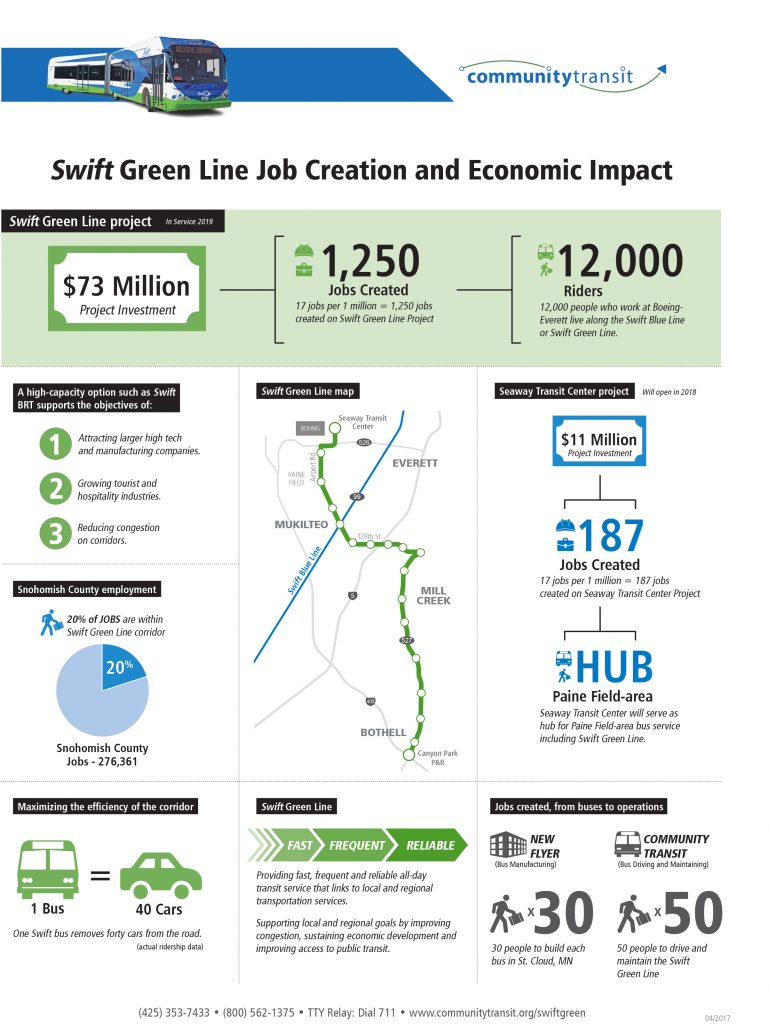From new light rail systems to bus rapid transit lines, cities are planning major new transportation investments to spur economic development and better connect people to opportunity. But how can they ensure that these investments — often in diverse and quickly evolving parts of their cities — transform neighborhoods in a positive way by building social capital, supporting local businesses, and celebrating the stories, cultural history and diversity of existing residents rather than displacing them?
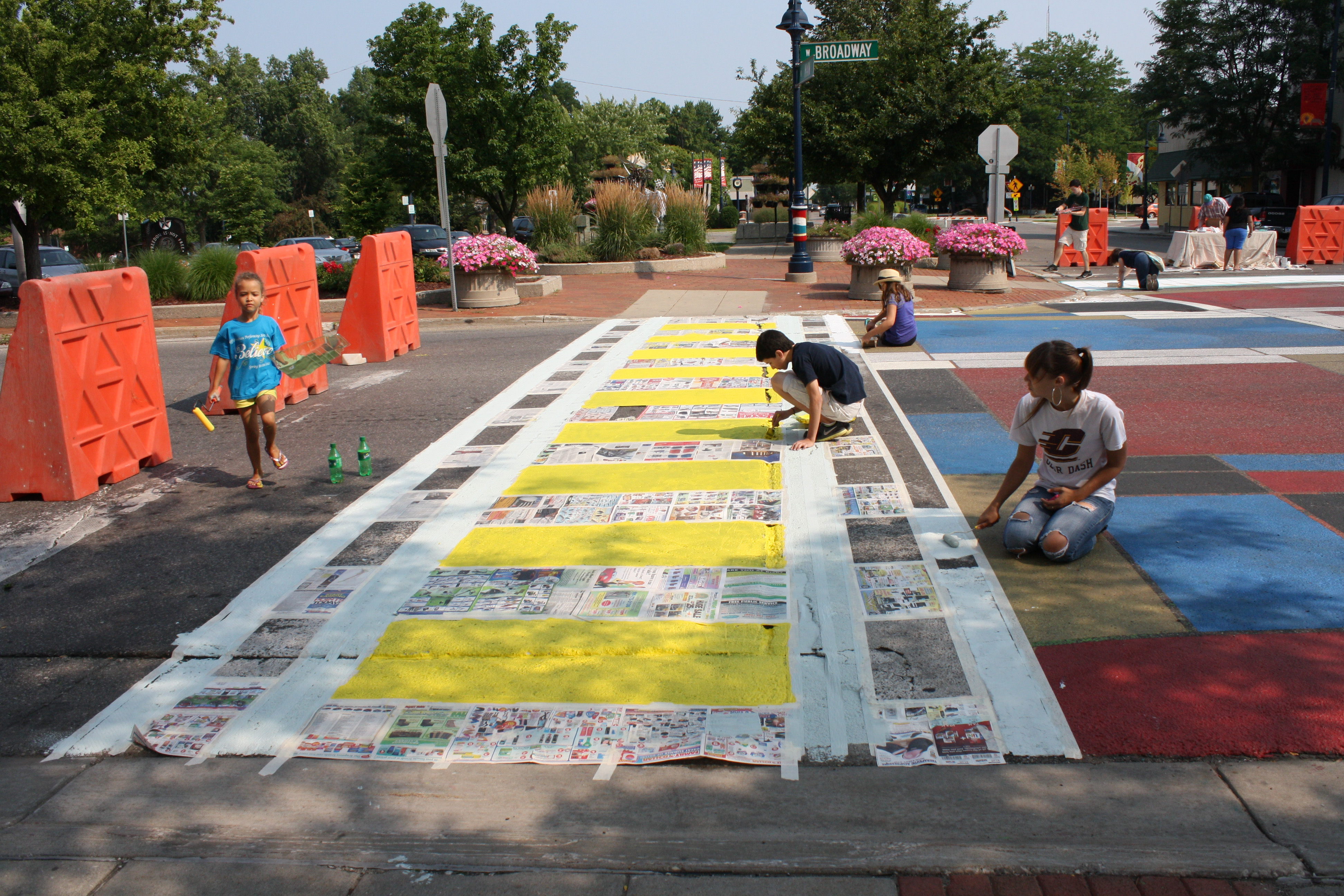
Through a generous grant from the Kresge Foundation, over the last two years we’ve worked alongside local partners in three rapidly changing, diverse communities around the country to explore how arts and culture and more creative forms of engaging the public can provide positive answers to the questions asked above.
We’re seeking to award $50,000 (each) to creative placemaking projects in three new cities for 2017-2018. Find out more about the grant opportunity and apply today.
Learn More & Apply
In three specific cities outlined below (and elsewhere), an approach known as creative placemaking has helped engage community members in a deeper way than traditional transportation and public works agencies have managed to do, enabling and empowering true community-led visions for the projects at hand. This approach demonstrates tremendous promise for transportation agencies and local governments at a time when many have historically failed to win deep public support for important projects, often delaying or derailing implementation.
Over the last two years of our Cultural Corridor Consortium project, as it’s called, we’ve witnessed artistic and cultural practice sparking deep public engagement, facilitating the difficult — but necessary — conversations required to create better projects that more fully serve the needs of these communities and reflect what makes them unique in the first place. The consortium consists of trusted local partner organizations working in transit corridors in neighborhoods just outside urban cores: the Nolensville Pike Corridor in Nashville, the University Avenue corridor in San Diego’s City Heights neighborhood, and Division Street in Portland’s Jade and Division-Midway Districts.
Here are brief versions of each of their stories:
Nashville

In south Nashville, the Nolensville Pike corridor is a thriving community of recent immigrants, primarily of Latin, Kurdish, Somali, and Sudanese origin. Today, Nashville welcomes more than 1,000 refugees a year, has the fastest growing immigrant community in the United States, and is home to one of the largest Kurdish populations outside the Middle East. Nolensville Pike, which has been dubbed the “International District,” serves as the focal point of these immigrant communities.
Nolensville Pike is also a congested, typical arterial highway that carries 60,000 automobile trips a day while also serving adjacent commercial uses and residential neighborhoods. Though it serves as the central commercial spine of immigrant life in south Nashville, it has eroded or non-existent sidewalks, few crosswalks, insufficient bicycle and pedestrian infrastructure, and no bus shelters, making travel outside of a car a downright unpleasant and often dangerous experience.
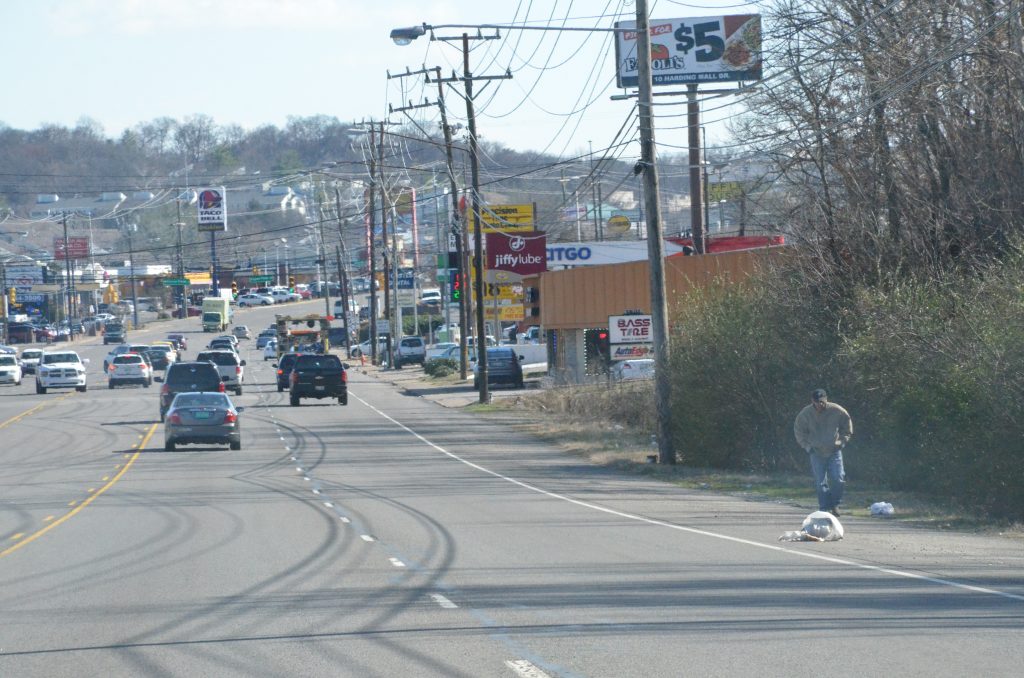
In 2015, Conexión Américas began hosting community meetings — facilitated by artists — to solicit ideas for transforming the road and surrounding spaces. At these meetings, the public expressed their desire for unbroken, connected sidewalks, artistic crosswalks, slower traffic, public art, and bus shelters. To bolster this work, we supported Conexión Américas and the Nashville Area MPO to facilitate community-based arts and culture public engagement to plan and implement improved bus service and, eventually, light rail.

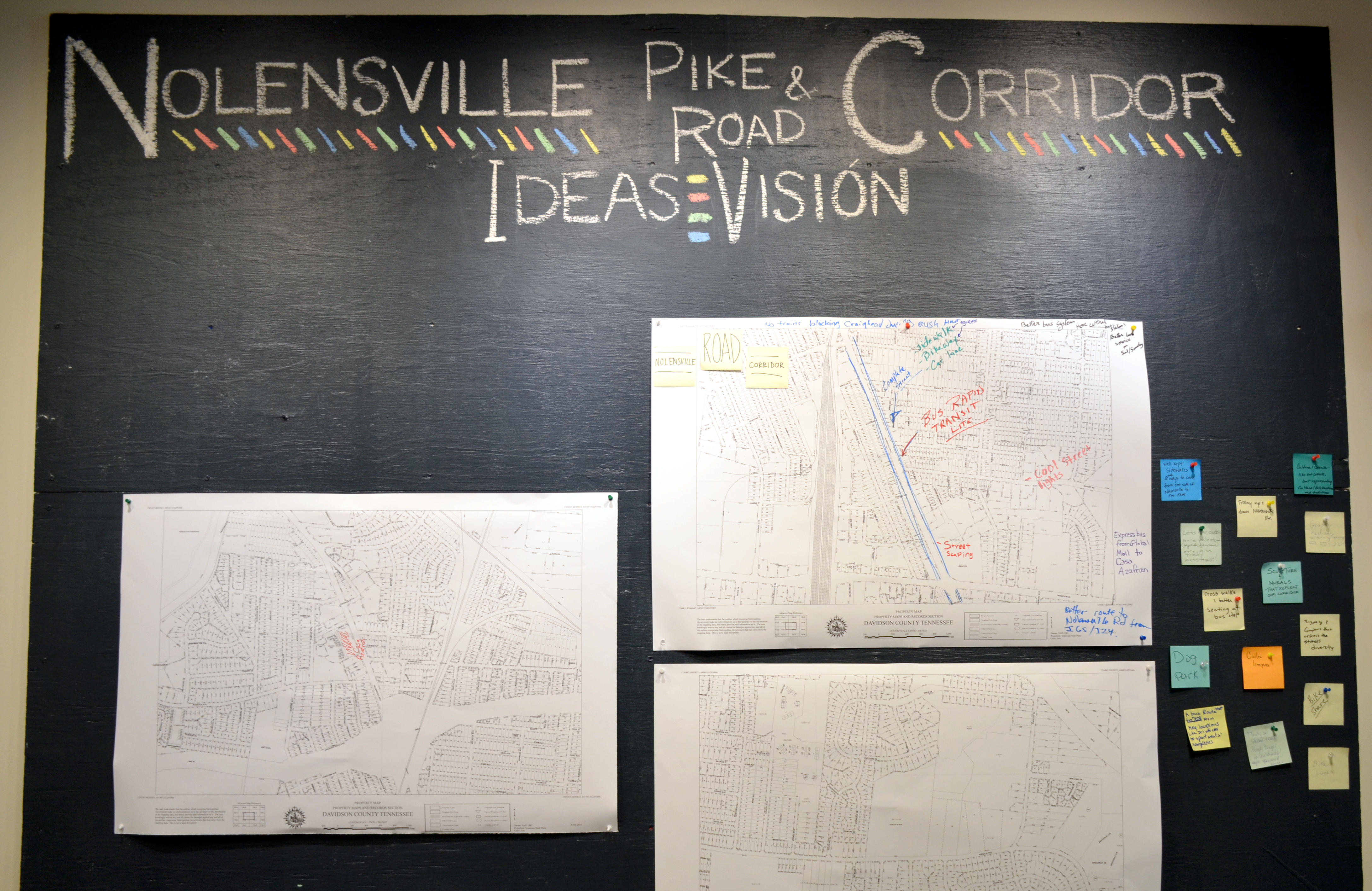
Through a student-led bus shelter design/build project, an intergenerational oral history project, and dynamic “Creative Labs” community meetings, the community came together to dream about the future of Nolensville Pike. This work was documented in Envision Nolensville Pike and led to the creation of the city’s first-ever bilingual crosswalk, situated on Nolensville Pike.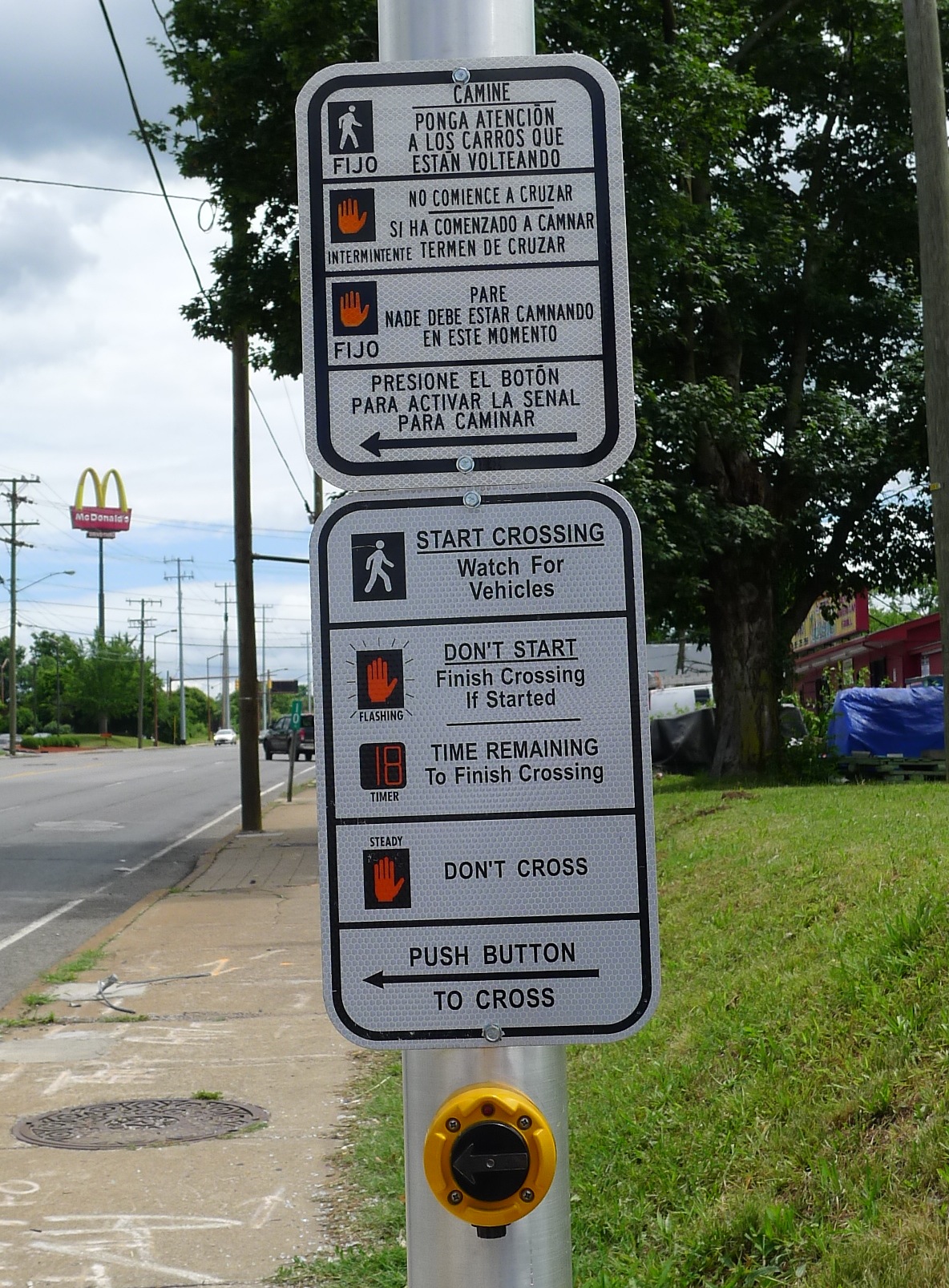
Supported by new analysis that T4America and Conexión Américas are releasing in the coming weeks, these partners are producing a plan to avoid commercial displacement and cultural gentrification along the corridor while building a better Pike for everyone. The next phase of this project will bring some of these visions to fruition to test ideas, push boundaries, and further build relationships along the diverse corridor.
The Nashville MPO formally launched its creative placemaking efforts with the adoption of its most recent regional transportation plan, and recently hosted a Creative Placemaking Symposium that convened area elected officials, transportation planners and engineers to think through applying creative placemaking to transportation projects.
San Diego
Since the mid-1990s, the neighborhood surrounding the intersection of 50th Street and University Avenue in the eastern City Heights neighborhood of San Diego has been a landing pad for newly arrived refugees from Somalia and other East African countries. Nearly three decades later, the bustling neighborhood, often referred to as as Little Mogadishu or Little Somalia, continues to serve the Somali and other East African communities. It’s a regional hub for other East Africans from throughout San Diego, a neighborhood hub for those that have been living there for years, and continues to be a welcoming home to new refugees. Many of those who arrived in the 1990s have become established business and community leaders, pillars of a strong local social fabric. In the neighborhood you’ll find Somali businesses, mosques that attract and support new arrivals, and affordable housing apartment complexes, all which contribute to the rich sense of culture and home.
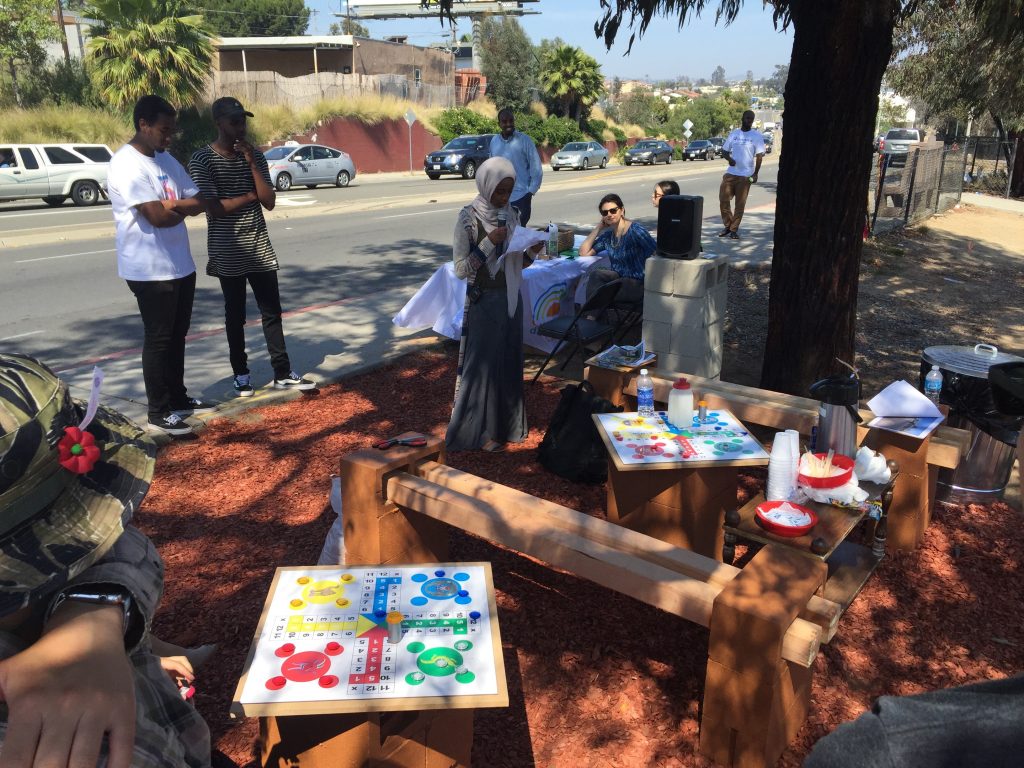
Despite the sense of community that the the neighborhood has nurtured, it’s a dangerous area to walk, with high rates of pedestrian fatalities and other safety issues. The City Heights Community Development Corporation (CHCDC) has been engaging the community to envision how they can integrate their art, culture and history with a safer streetscape. Picking up on that work, Circulate San Diego, alongside CHCDC, initiated new programs to engage with largely East African and Somali residents to define community assets, and discuss how these assets can be reflected in art to improve the overall transit ridership experience with bus rapid transit on El Cajon Boulevard.
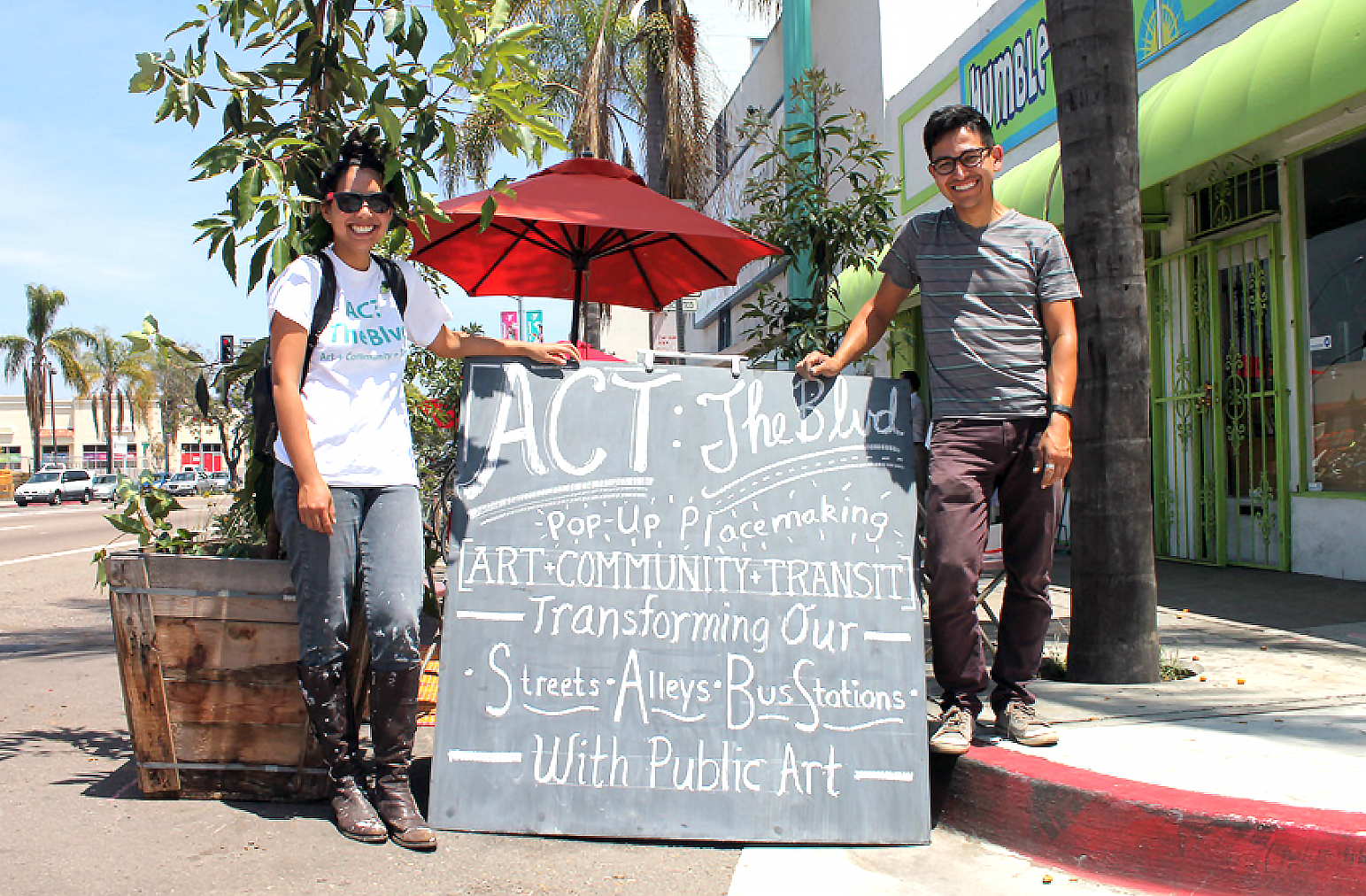
All of this public engagement has led to the development of parklets, gathering spaces, a pop-up coffee shop, local farmers market and traffic calming murals that have helped solidify sense of place, strengthened community ownership, and increased pedestrian safety.
The neighborhood’s “Take Back the Alley” mural project brought community members together to create a mural near a BRT station. This public art piece, and the positive effects it has on the surrounding area generated inertia, encouraging a small business owner nearby to clean up an adjacent parking lot and repurpose it as a café space, now leased by a local start-up coffee cart business.
Our partners also spearheaded the new San Diego Neighborhood Placemaking Collaborative, a collection of five neighborhood-based organizations who meet regularly to advocate for creative placemaking in the region. Last year, Circulate San Diego produced A Place for Placemaking in San Diego as a roadmap to overhaul the regulations and permitting policies that negatively impact creative placemaking projects in San Diego. The white paper is already helping to shape new permitting procedures by defining creative placemaking in San Diego’s Municipal Code and subsequently providing for a new process for community organizations and other applicants interested in pursuing neighborhood placemaking projects. Circulate San Diego and CHCDC also recently participated as key stakeholders in a city-led “Complete Boulevard study” to bring a complete streets design concept and creative placemaking elements to El Cajon Boulevard and this neighborhood in particular.
Portland
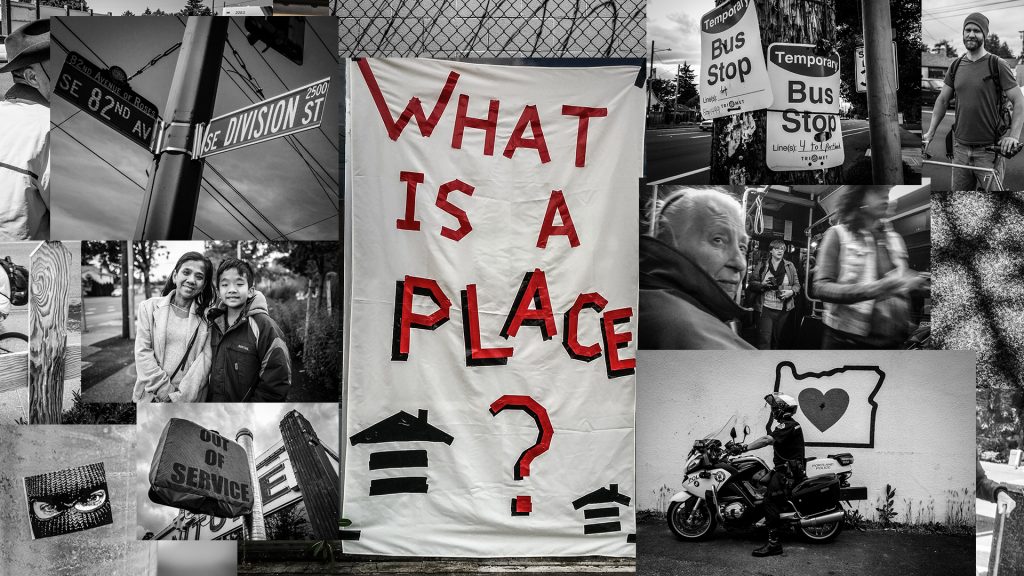
In Portland, arts-based engagement has helped build a positive dialogue between local agencies and the community to ensure that a new planned bus rapid transit line serves the residents of ethnically diverse, working class districts in the eastern part of the city. The Asian Pacific American Network of Oregon (APANO) and the Division-Midway Alliance, two nonprofits located respectively in the Jade and Division districts along Division street in Portland, have been empowering residents, businesses, and students through arts and culture to shape the evolving BRT project.
This area is home to many immigrant families that give the area a rich ethnic and cultural diversity that is increasingly rare in Portland. In a corridor with members from such diverse backgrounds, creative tactics allow the community to advocate, express, and communicate their needs and interests related to this new transportation proposal.
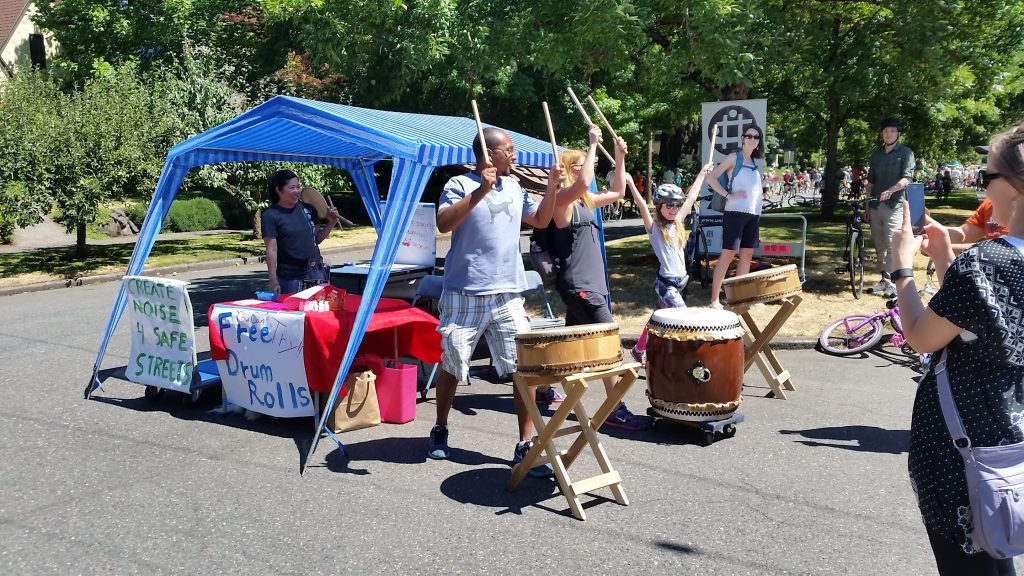
By building public awareness and pressure through placemaking work and community organizing, APANO and Division-Midway Alliance helped to pause construction of the BRT planning process until the Portland Bureau of Transportation, Trimet, Metro, and others made formal community benefit agreements by agreeing to mitigation measures to ensure that the new vital transit service would transform the community in a positive way.
Similar to Nashville and San Diego, our partners in Portland also developed a community-based vision — the Jade-Midway Districts Art Plan — to guide their arts and culture solutions to transportation challenges. To further build local capacity, our partners built a Placemaking Steering Committee comprised of eight civic, nonprofit, and government members to guide creative placemaking plans in the district. APANO also launched a creative placemaking project grant program, which funds the creation of cultural worker-led projects in the district. These cultural workers then participate in a cohort known as the Resident Artist Collaborative, in which they receive training to help prepare to produce community-engaged work.
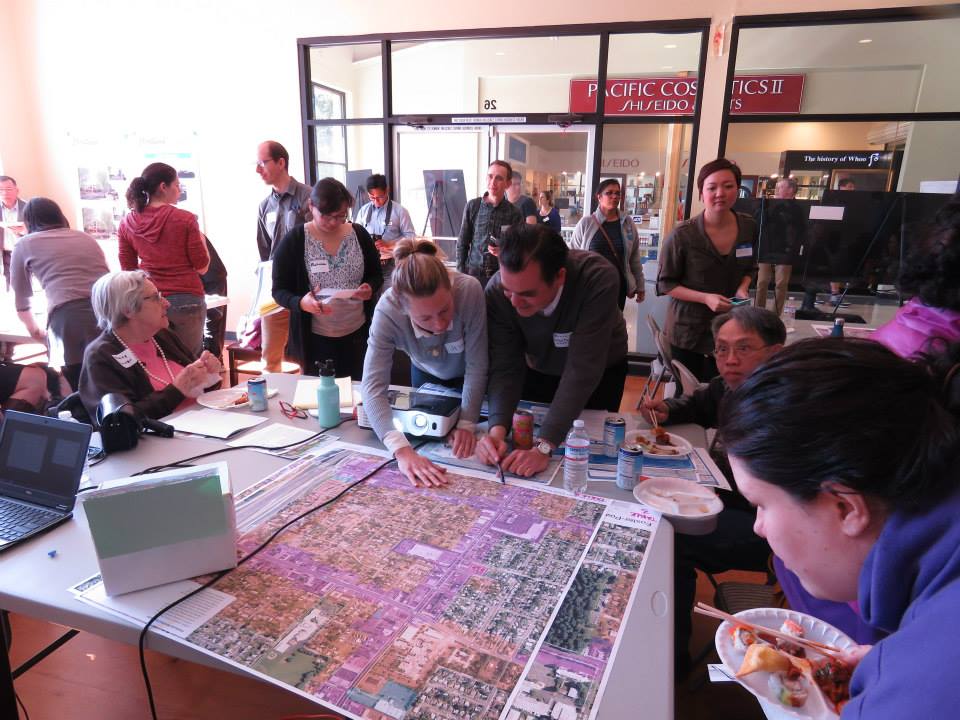
One of the most exciting products of this work is the creation of a new community placemaking grant program at Metro, which will institutionalize this cultural work through the Portland area. Metro, the Portland region’s MPO, kicked off their inaugural Community Placemaking Grant last month, and we were on hand, and we were on hand.
Arts and culture contribute to the unique identity of a city and exert a powerful emotional pull. They’re intrinsic to preserving what’s great about the places people already love, and for creating new places worth caring about. We firmly believe that engaging the public through the arts and culture helps produce better projects, promote social equity, and is part of building better places that are loved and cared for by a more diverse community of people.
In all three of these cities we’ve seen a deep commitment to community-building between local organizations and municipal agencies lead to new institutional creative placemaking programs that will last long after these isolated projects are finished. The pilot projects have led directly to new funding programs and policy changes to build a sustained practice of creative placemaking in the three cities, while bringing new voices to the table.
Bring creative placemaking to your city through a new grant opportunity
After working closely with these cities over the last few years, we are eager to expand on this work — we’re seeking to award $50,000 (each) to creative placemaking projects in three new cities for 2017-2018.
Find out more about the grant opportunity and apply today.
Learn More & Apply
This post was produced by Mallory Nezam and Ben Stone on our arts and culture team.




